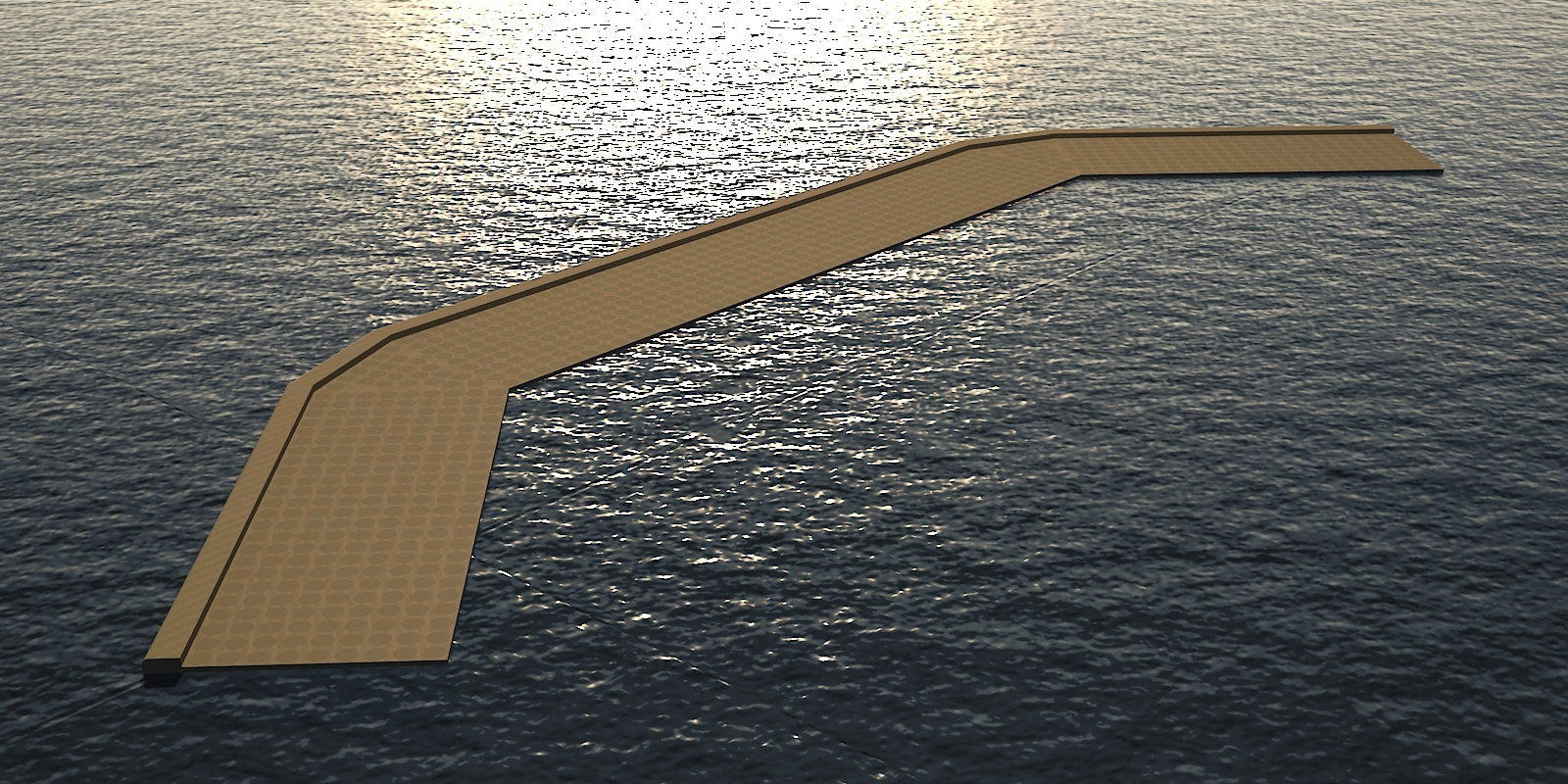
Pneumatically Stabilised Platform
The Pneumatically Stabilised Platform (PSP) system permits the design and construction of very large floating platforms of unlimited size. PSPs may be deployed in regions with extreme wave heights and achieve more stability than achieved by any other known marine technology.
The PSP is a patented design concept for large floating platforms, in which the flotation force is derived from an array of open-bottom cylinders retaining pressurized air that displaces the water.


PSP Marine Technology Characteristics:
- Softer response to waves with higher deck load capacities.
- More than 70-years of longevity without significant maintenance.
- Does not require periodic dry docking.
- Deployable in unlimited water depth and of unlimited platform size.
- Supports multiple energy sources, i.e. wave, wind, and current.
- Supports multiple functions; e.g. lodging, dining, medical facilities, and maintenance facilities for turbine, rotor and boat repairs, etc.
- PSP provides protected calm waters (leeward) for supply ship and maintenance craft dockage.

PSP and Air Exchange
The secret of the PSP’s motion stability lies in the mobility of its buoyancy air. It achieves its at-sea motion stability and structural loads mitigation by decoupling the hull from ocean wave pressures through the use of air buoyancy, which is both compressible and mobile. The air is made mobile by means of ducting. The ducting arrangement is selectable in real time to best suit the sea-state environment and platform deck load distribution. Local air pressure adjustments are made via Roots-type blowers, as needed.

Potential Energy Storage
How does PSP store energy?
As the Pneumatically Stabilized Platform is buoyantly supported afloat in large measure by pressurized air, and the accessible internal volume of a PSP platform is quite large, considerable potential energy can be stored. That energy can later be recuperated during intervals of low wave activity to better match varying demands of the electrical load infrastructure demands.
Float Incorporated Pneumatically Stabilized Platform tank testing:
Department of Advanced Research Projects Agency (DARPA) 1995-96
Confirmation of PSP marine technology
Office of Naval Research (ONR) 1997-98
Confirmation and validation of PSP marine technology characteristics
Pneumatically Stabilized Platform marine technology chosen for inclusion in USA national R&D program – Department of Defense “Mobile Offshore Base”
Office of Naval Research (ONR) Model Tank Test Results pertaining to wave attenuation revealed the following performance characteristics:
Wave Period
7 seconds
9 seconds
12 seconds
16 seconds
20 seconds
Wave Height
0m90
2m50
5m50
10m00
15m50
Wave Attenuation (% & m)
94% & 0m05
72% & 0m70
50% & 2m75
63% & 3m70
54% & 7m13
